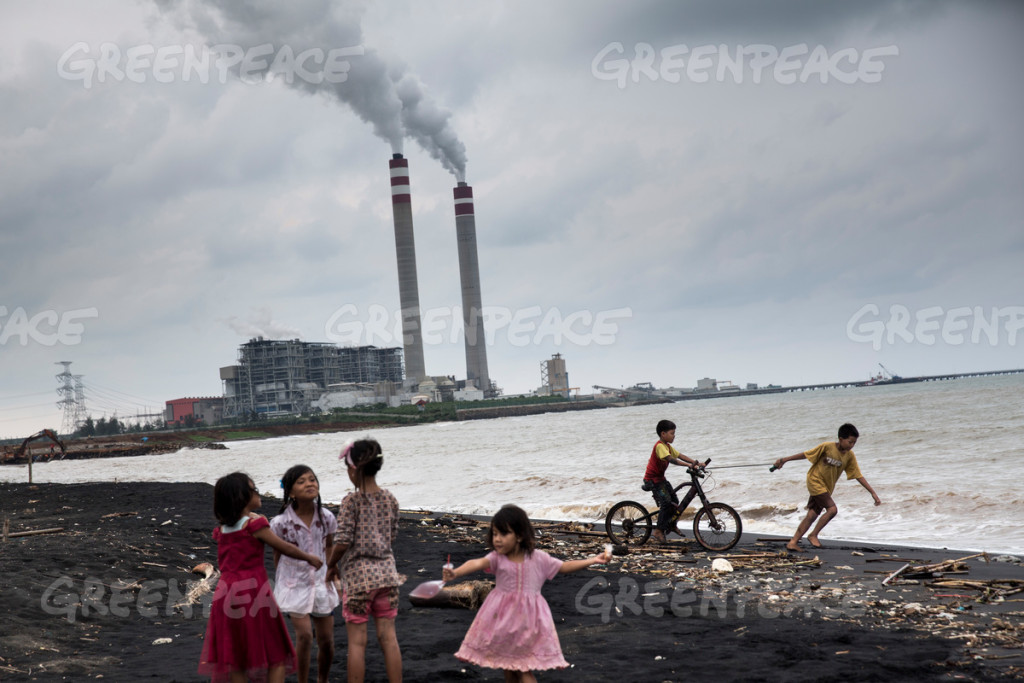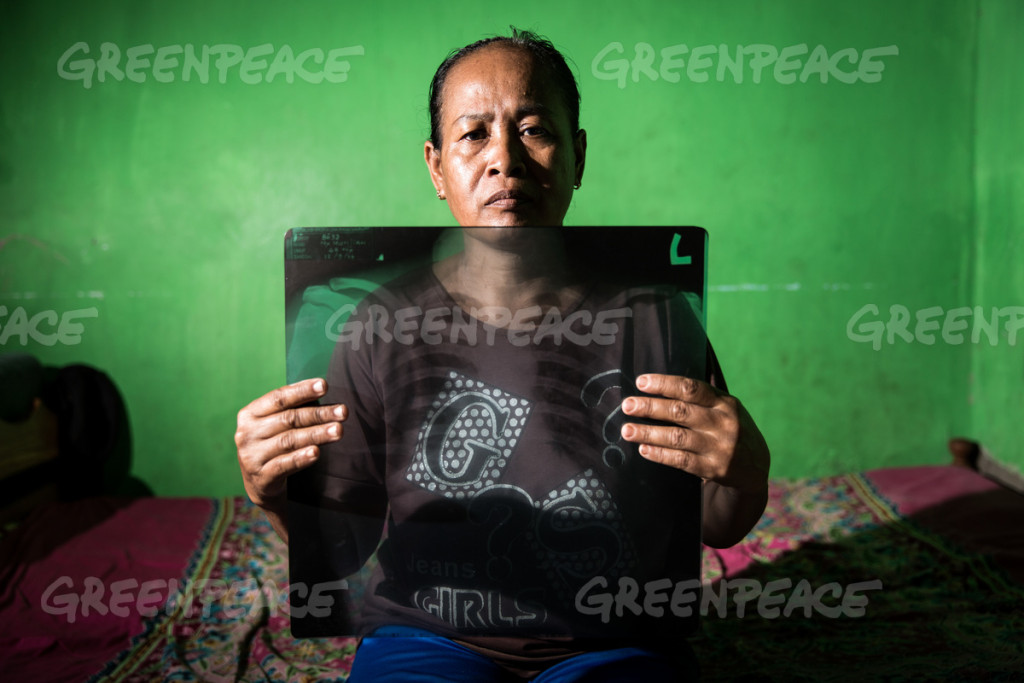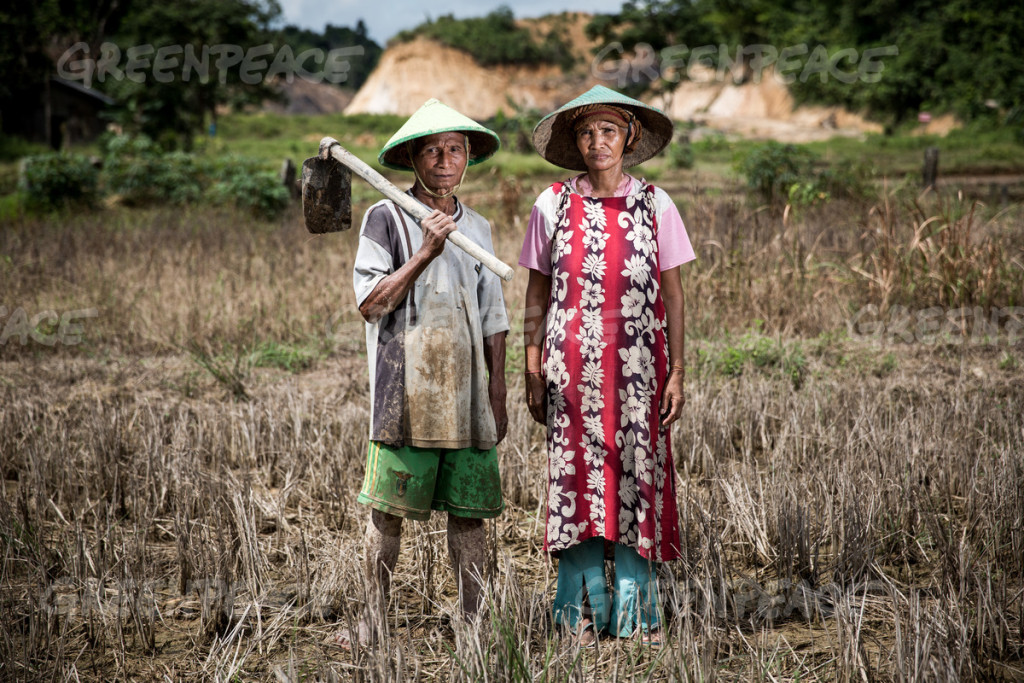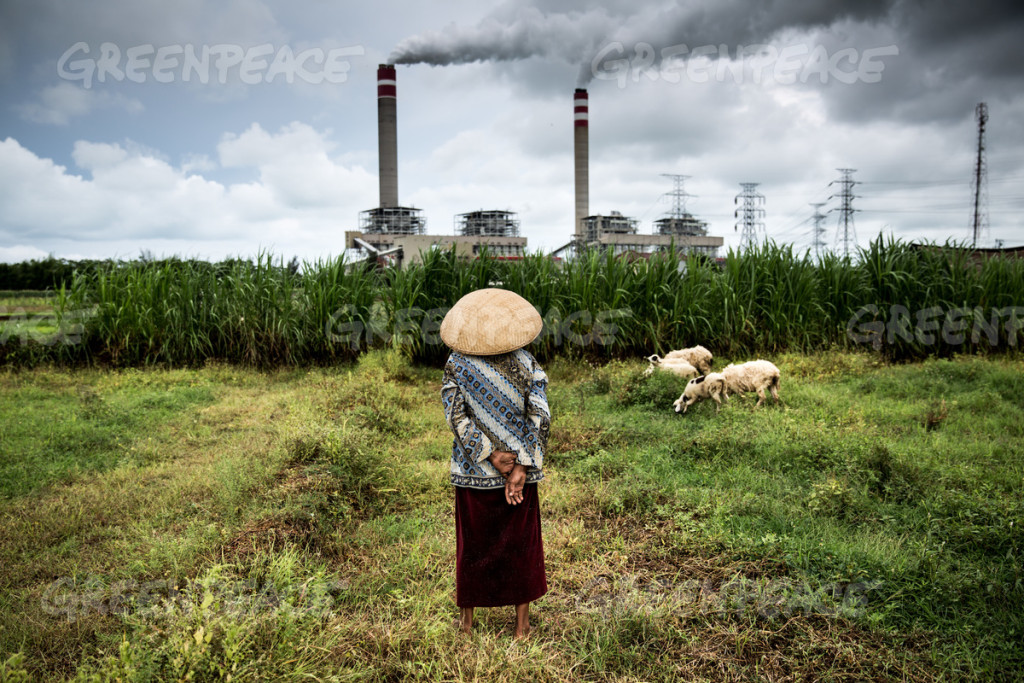




Jakarta, 12 August 2015 – Existing coal plants in Indonesia cause an estimated 7,100 premature deaths every year according to research by Harvard University and Greenpeace Southeast Asia – the first of its kind to look at illness and deaths associated with Indonesia’s coal-fired power plants. This number could climb to over 28,000 per year if the Indonesian government goes ahead with an ambitious rollout of more than one hundred new coal-fired power plants.
These worrying figures are based on new atmospheric modeling conducted by a research team at Harvard University’s Atmospheric Chemistry Modeling Group, using a cutting edge atmospheric chemistry-transport model, GEOS-Chem.
“President Jokowi has a choice: stay with a business-as-usual approach to generating electricity and see the lives of thousands of Indonesians cut short, or lead the switch and rapid expansion to safe, clean, renewable energy,” said Hindun Mulaika, Climate and Energy Campaigner at Greenpeace Southeast Asia.
“Every new coal-fired power plant means elevated health risks for Indonesian people. Lives are cut short through strokes, heart attacks, lung cancer and other cardiovascular and respiratory diseases. The health impacts sadly also include deaths of many young children,” said Hindun.
“The proposed “clean coal” power plant at Batang alone could cause 30,000 premature deaths over an operating life of 40 years. But the good news is that the President’s choice just became a lot clearer Indonesia has the opportunity to leapfrog dirty technologies and follow other world leaders making the switch to clean energy. This would result in a healthier, safer and more prosperous population,” said Hindun.
The report, The Human Cost of Coal, is being launched on the back of the recent announcement by President Jokowi to build an additional 35 GW of new power plants, 22 GW of which would come from coal power plants.
“Emissions from coal-fired power plants form particulate matter and ozone that are detrimental to human health. Indonesia is one of the countries in the world with the largest plans to expand coal-fired power generation, yet little has been done to explore the associated health impacts. Our results show that planned coal expansion could significantly increase pollution levels across Indonesia. The human health cost from this rising coal pollution should be considered when making choices about Indonesia’s energy future,” said the lead Harvard researcher in the project, Shannon Koplitz.
“New power generation in China, US, and the EU is already coming predominantly from renewables and 2014 was the first year that renewable energy growth overtook fossil fuel growth globally. China, which offers a warning example of where unfettered coal expansion could be taking Indonesia, is steering away from coal because of the horrendous toll on air quality and health,” said Lauri Myllyvirta, Greenpeace East Asia coal and air pollution specialist.
“The Human Cost of Coal” can be downloaded from: http://www.greenpeace.org/seasia/id/press/reports/Harvards-Research-Result-Human-Cost-of-Coal-Indonesia/
